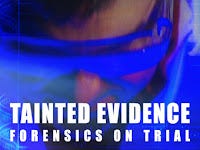Faulty FBI forensics training isn't always revealed at the state & local level.

No other agency in the United States performed as many hair examinations or believed as much in the technique as the FBI lab’s 10-member unit of hair examiners.
But The Post’s investigation earlier this year showed how agents, prosecutors or both sometimes exaggerated the significance of the evidence they had.
Thousands of criminal cases at the state and local level may have relied on exaggerated testimony or false forensic evidence to convict defendants of murder, rape and other felonies.
The forensic experts in these cases were trained by the same elite FBI team whose members gave misleading court testimony about hair matches and later taught the local examiners to follow the same suspect practices, according to interviews and documents.
In July, the Justice Department announced a nationwide review of all cases handled by the FBI Laboratory’s hair and fibers unit before 2000 — at least 21,000 cases — to determine whether improper lab reports or testimony might have contributed to wrongful convictions.
But about three dozen FBI agents trained 600 to 1,000 state and local examiners to apply the same standards that have proved problematic.
None of the local cases is included in the federal review. As a result, legal experts say, although the federal inquiry is laudable, the number of flawed cases at the state and local levels could be even higher, and those are going uncorrected.
The FBI review was prompted by a series of articles in The Washington Post about errors at the bureau’s renowned crime lab involving microscopic hair comparisons. The articles highlighted the cases of two District men who each spent more than 20 years in prison based on false hair matches by FBI experts. Since The Post’s articles, the men have been declared innocent by D.C. Superior Court judges.
Two high-profile local-level cases illustrate how far the FBI training problems spread.
In 2004, former Montana crime lab director Arnold Melnikoff was fired and more than 700 cases questioned because of what reviewers called egregious scientific errors involving the accuracy of hair matches dating to the 1970s. His defense was that he was taught by the FBI and that many FBI-trained colleagues testified in similar ways, according to previously undisclosed court records.
In 2001, Oklahoma City police crime lab supervisor Joyce Gilchrist lost her job and more than 1,400 of her cases were questioned after an FBI reviewer found that she made claims about her matches that were “beyond the acceptable limits of science.” Court filings show that Gilchrist received her only in-depth instruction in hair comparison from the FBI in 1981 and that she, like many practitioners, went largely unsupervised.
Federal officials, asked about state and local problems, said the FBI has committed significant resources to speed the federal review but that state and local police and prosecutors would have to decide whether to undertake comparable efforts.
FBI spokeswoman Ann Todd defended the training of local examiners as “continuing education” intended to supplement formal training provided by other labs. The FBI did not qualify examiners, a responsibility shared by individual labs and certification bodies, she said.
Michael Wright, president of the National District Attorneys Association, said local prosecutors cannot simply order labs to audit all or even a sample of cases handled by FBI-trained examiners, because such an undertaking might be time- and cost-prohibitive for smaller agencies.
In its April investigation, The Post found that Justice Department officials failed to tell many defendants or their attorneys of questionable evidence and that the results of the review remained largely secret.
In addition, Justice Department officials have for years blamed errors on isolated failures by rogue examiners, careless prosecutors or inept defense lawyers.
But former chiefs of the FBI lab’s hair and fiber unit now acknowledge that the problems were more widespread. Some federal examiners, testifying in cases across the country, overstated the importance of hair evidence and responded to questions about the scientific accuracy of hair matches by citing amorphous statistics drawn from their experience.
Moreover, they said, examiners should have been trained to accurately portray their findings in court. When local lab examiners went to the FBI for training, they received the same inadequate instruction.
Interviews with the former unit chiefs, as well as more than 20 practitioners, scientists and legal experts, and a review of court records, training notes and transcripts of meetings indicate that some FBI lab examiners tried to skirt the limitations of their scientific findings in testimony and that they were encouraged to do so by their trainers.
As warnings about the problems mounted — through DNA exonerations, whistleblower complaints, court rulings — bureau managers implemented stronger protocols, but they limited disclosure of the problems they found. More forthcoming disclosure could have jeopardized convictions.
“If the FBI is going to be a role model, we need to see this federal audit lead to wider audits of labs across the country,” said Myrna S. Raeder, a Southwestern University law professor who is leading an American Bar Association effort to improve forensic evidence. “If you had even the elite FBI analysts out there crossing the line and exaggerating the forensics, that sent a terrible message that ‘anything goes.’ ”
In a letter this month to the Senate Judiciary Committee, the Justice Department acknowledged that FBI examiners “may have exceeded the limits of the science by overstating . . . conclusions” in some cases.
Peter Neufeld, co-founder of the Innocence Project, said hair analysis practitioners should end their resistance to putting scientists in charge of setting clear, consistent standards for lab reports and testimony.
“When the stakes involve life and liberty, those scientific parameters and standards should be set by scientists, not by law enforcement,” said Neufeld, whose organization advocates for people trying to prove their innocence through DNA testing. The Innocence Project and the National Association of Criminal Defense Lawyers were consulted by the FBI on the national review.
http://www.washingtonpost.com/local/crime/review-of-fbi-forensics-does-not-extend-to-federally-trained-state-local-examiners/2012/12/22/b7ef9c2e-4965-11e2-ad54-580638ede391_story.html


